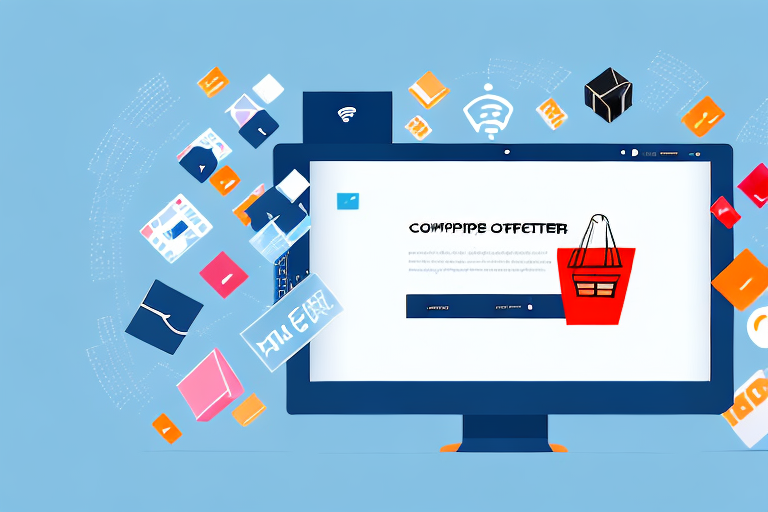Choosing the Right E-Commerce Platform for Your Business
In today's digital age, having an online presence is critical for any business that wants to stay competitive. An e-commerce platform is an essential tool for businesses that want to sell products and services online. With so many options available, choosing the right e-commerce platform can be overwhelming. This guide explores the key factors to consider when selecting an e-commerce platform for your business.
Importance of Selecting the Right E-Commerce Platform
Choosing the right e-commerce platform is crucial for the success of your online business. A platform that is easy to use, reliable, and scalable can help increase your customer base and boost online revenue. Conversely, a poorly chosen platform can lead to lost sales and frustrated customers.
Security Features
Security is paramount in e-commerce. With the rise of cyber threats, it's essential to ensure that your customers' personal and financial information is protected. Look for platforms that offer:
- SSL encryption
- Two-factor authentication
- Regular security updates
According to a IBM report, the average cost of a data breach in 2023 was $4.45 million, highlighting the importance of robust security measures.
Customization and Flexibility
Your business may have unique needs that a generic platform cannot accommodate. Choose a platform that allows for extensive customization to tailor your online store to your specific requirements, enhancing the user experience for your customers.
Understanding Your Business Needs
Before selecting an e-commerce platform, it's essential to understand your business needs. Consider the following aspects:
Product Type and Inventory
The nature of your products—whether physical, digital, or services—will influence the features you need. Additionally, assess the size of your inventory and the platform’s ability to manage it efficiently.
Target Audience
Identify your target customers, their buying behavior, and preferred payment options. Platforms that support multiple payment gateways can cater to a broader audience.
Scalability
As your business grows, your platform should handle increased traffic and sales volume. Ensure the platform offers flexible pricing plans and can integrate additional features and tools as needed.
Evaluating E-Commerce Platform Features
Once you’ve identified your business needs, evaluate the features and capabilities of different e-commerce platforms:
Essential Features
- Payment Gateways
- Shipping Integrations
- Inventory Management
- Customizable Themes
Customer Support
Reliable customer support is vital. Look for platforms that offer comprehensive documentation, tutorials, and multiple support channels such as email, phone, and live chat. A strong community and active user base can also provide valuable assistance.
Pricing Structure
Understand the platform’s pricing model, including any additional fees like transaction fees or monthly subscriptions, to ensure it aligns with your budget.
Top E-Commerce Platforms for Small Businesses
For small businesses with limited resources, the following platforms are highly recommended:
- WooCommerce: A flexible, open-source platform built on WordPress, ideal for businesses looking for customization.
- Shopify: Known for its ease of use and extensive app ecosystem, making it suitable for beginners.
- BigCommerce: Offers robust built-in features and scalability, suitable for growing businesses.
These platforms are user-friendly, customizable, and affordable, making them perfect for small businesses.
Top E-Commerce Platforms for Large Businesses
Large businesses require platforms that can handle high traffic volumes, extensive product catalogs, and multiple payment options. Top choices include:
- Magento (Adobe Commerce): Highly customizable and scalable, ideal for businesses with complex needs.
- Salesforce Commerce Cloud: Offers advanced features like multi-store management and omnichannel capabilities.
- PrestaShop: An open-source platform that provides extensive customization options.
Each platform has its strengths, so consider factors like budget, customization needs, and support when making a choice.
Cost Considerations for E-Commerce Platforms
Cost is a significant factor when selecting an e-commerce platform. Consider the following:
Pricing Models
- **Subscription Fees:** Monthly or annual charges based on the plan.
- **Transaction Fees:** Fees per sale, which can add up as your sales volume increases.
- **Additional Costs:** Costs for payment gateways, hosting, and premium themes or plugins.
Customization Costs
Platforms that require extensive customization may necessitate hiring a developer, adding to the overall cost. Evaluate whether the platform’s built-in features meet your needs or if additional investment is required.
Scalability and Future Costs
Ensure the platform can scale with your business growth. Consider potential costs associated with upgrading plans or adding new features as your business expands.
Technical Requirements of E-Commerce Platforms
Different platforms have varying technical requirements. Assess the following:
Technical Expertise
Some platforms require a higher level of technical knowledge. Choose a platform that matches your team’s expertise or be prepared to invest in training or professional assistance.
Hosting and Security
- **Hosted Platforms:** Managed hosting and security (e.g., Shopify).
- **Self-Hosted Platforms:** Require separate hosting services and greater control over security measures (e.g., Magento).
Integration Capabilities
Ensure the platform can integrate seamlessly with your existing business processes, including inventory management, shipping, and accounting systems.
Security and Payment Integration
Security and smooth payment integration are non-negotiable for an e-commerce platform:
Secure Payment Gateways
Select platforms that support reputable payment gateways like PayPal, Stripe, and Authorize.Net to ensure secure transactions.
Data Protection
Platforms should offer features such as SSL certificates, data encryption, and regular security updates to protect customer information.
According to the Cybersecurity Insiders report, investing in robust security measures significantly reduces the risk of data breaches.
Integrating Business Processes with Your E-Commerce Platform
Seamless integration of your existing business processes is crucial for efficient operations:
Inventory and Shipping
Choose a platform that integrates with your inventory management and shipping systems to automate processes and reduce manual errors.
Accounting Systems
Integration with accounting software like QuickBooks or Xero ensures accurate financial tracking and reporting.
Data Security During Integration
Ensure that data transfers between systems are secure to protect sensitive business and customer information.
Hosted vs. Self-Hosted E-Commerce Platforms
When choosing an e-commerce platform, decide between hosted and self-hosted solutions:
Hosted Platforms
- **Pros:** Easy setup, managed hosting and security, customer support.
- **Cons:** Limited customization, ongoing subscription costs.
Example: Shopify
Self-Hosted Platforms
- **Pros:** Full control over customization, potentially lower long-term costs.
- **Cons:** Requires technical expertise, responsibility for hosting and security.
Example: Magento
Design and User Experience
The design and user experience of your online store significantly impact customer behavior and conversions:
Customizable Themes
Choose a platform that offers a variety of customizable themes to create a visually appealing and unique storefront.
Mobile Optimization
Ensure your site is mobile-responsive, as mobile commerce continues to grow. According to Statista, mobile commerce accounted for 54.9% of total e-commerce sales in 2023.
User-Friendly Navigation
A well-organized site structure and intuitive navigation enhance the shopping experience, leading to higher sales and customer loyalty.
Customer Support Options
Reliable customer support is essential for resolving issues quickly and maintaining smooth operations:
Support Channels
- Email Support
- Phone Support
- Live Chat
Resource Availability
Platforms should offer comprehensive documentation, tutorials, and active community forums to assist you in troubleshooting and optimizing your store.
Migrating Between E-Commerce Platforms
If you’re considering switching e-commerce platforms, ensure a smooth migration to avoid data loss and customer disruption:
Data Backup
Always back up your data and inventory before initiating the migration process.
Migration Services
Choose platforms that offer migration tools or services, or consider hiring a professional to handle the transition.
Customer Communication
Inform your customers about the upcoming changes to prevent confusion and maintain trust during the transition period.
Future-Proofing Your E-Commerce Business
To ensure long-term success, select an e-commerce platform that is scalable and flexible:
Scalability
The platform should accommodate business growth, including increased traffic, expanded product lines, and additional features.
Flexibility
Choose a platform that allows for easy integration of new technologies and adaptation to changing market trends.
Continuous Improvement
Opt for platforms that regularly update their features and security measures to stay ahead of industry standards.
Conclusion
Choosing the right e-commerce platform is critical for the success of your online business. Carefully evaluate your business needs, consider essential features and security, assess costs, and ensure the platform can scale with your growth. By selecting a suitable e-commerce platform, you can enhance your online presence, increase revenue, and build lasting customer relationships.




















